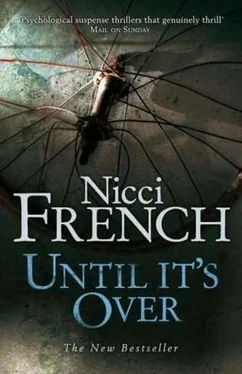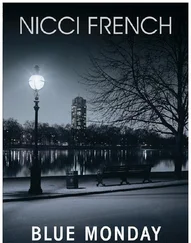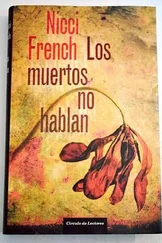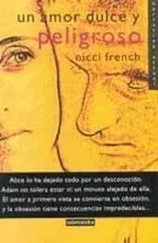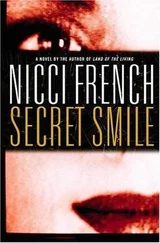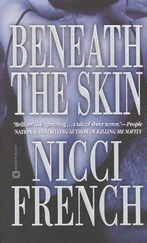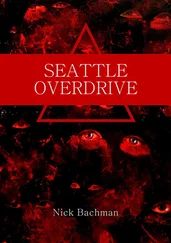‘Kamsky told me you were a psychological expert on this sort of stuff.’
‘You could say that. Sit down.’
He waved me towards a high-backed wicker chair. When I sat on it, it crackled disconcertingly. ‘I don’t really understand why you want to talk to me,’ I said. ‘I don’t know much and what I do know is in the statements I gave.’
‘I’ve read them,’ he said dismissively. ‘That sort of thing doesn’t interest me. I invited you here because I wanted to smell you.’ He gave a sniff, like some snuffly animal.
‘What?’ I said, alarmed.
‘Not literally,’ he said, ‘although I’m sure you smell very nice.’
‘Not when I’m riding round London.’
‘I need to get a feel for the case. I need to plug into it. Into its vibrations. There are people in white booties who go around Ingrid de Soto ’s house with their tweezers and their little plastic bags. I don’t do that. I make imaginative leaps. I lie in the dark and think about it. I dream about it. Have you dreamed about it, Astrid?’
‘No,’ I said. ‘Well, not as far as I know. I don’t remember my dreams on the whole.’
‘That’s interesting,’ he said, padding around the room, stopping every so often to look at me. ‘Forgetting can be our way of telling ourselves what we need to know.’
‘I’m sorry,’ I said. ‘I don’t know what that means.’
‘Tell me what you dreamed last night.’
‘I can’t. I don’t remember.’
‘Were you upset by what you saw?’
‘Yes.’
‘Tell me about it.’
I paused for a moment. ‘I found a woman who had been murdered and mutilated,’ I said, ‘and you want me to tell you why I was upset by it?’
‘What did you think when you saw her body?’
‘It wasn’t about thinking. I was shocked. Then I called the police. And an ambulance, too, I think.’
‘You think?’
‘It’s a bit of a blur.’
‘ “Blur”. That’s an interesting word.’
‘No, it isn’t.’
‘Really?’ said Dr Bradshaw. ‘Why not?’
‘It’s a cliché,’ I said. ‘It’s what people say after a shocking experience. They say: “It was a blur.” ’
‘Why do they say it, then?’
‘Because it’s true. Because it’s a blur.’
Bradshaw looked dissatisfied. He walked up and down, then stopped abruptly in front of me. ‘Astrid, why do people commit murders in front of you?’
‘I think it’s just a coincidence.’
‘From God’s point of view there are no coincidences.’
‘I’m not sure what that means,’ I said. ‘But the bit of it I understand, I don’t agree with.’
‘We need to tell a story that links them,’ said Dr Bradshaw.
‘A true story?’ I asked doubtfully.
‘Murderers are storytellers,’ said Dr Bradshaw. ‘Murder scenes are their stories, their works of art. Our job is to decode them. We analyse their signature, we understand them.’
‘Do you catch them?’
Dr Bradshaw gave me a look of distaste as if that were a shallow and vulgar concern. ‘Astrid, let me tell you one possible story. Some murders are acts, some are statements, some are displays, some are offerings. The detectives are baffled about what could link these two murders to you. Let us imagine them as offerings. My cat is called Ariel.’
‘After the soap powder.’
‘After the Shakespearean character. He brings in mice and lays them by my bed. They are offerings. Imagine these murders as declarations of love.’ Dr Bradshaw leaned over me. ‘I love you, Astrid.’
‘What?’
‘I’m telling a story. I love you, Astrid, and here is the body of Margaret Farrell, the woman who almost killed you.’
‘It was an accident.’
‘Does it matter? And now here is the body of a beautiful, rich woman, laid out for you. I have mutilated her face to show that nobody can compare to you.’ He leaned closer still. I could smell his breath: coffee, cigarettes. ‘Mmm?’
I moved away. ‘It seems a bit far-fetched to me.’
‘We’ll see,’ said Dr Bradshaw, with a smile. He picked a small wooden sculpture from a table and began to finger it delicately. ‘Do you have a boyfriend, Astrid?’
‘No,’ I said.
‘You hesitated before you said that. Why?’
‘Perhaps because I can’t see what business it is of yours.’
‘I think there’s someone, even if he’s not a boyfriend yet.’
‘Maybe.’
‘You like him. Does he like you?’
‘I don’t know,’ I said.
‘Do you have ex-boyfriends?’
‘I really don’t think this is relevant.’
‘Please, Astrid. Do you?’
‘Well, of course.’
‘Are you on good terms with them?’ he asked.
It was terrible but I couldn’t stop myself smiling, then regretted it instantly because Dr Bradshaw pounced. ‘Yes?’ he said.
‘Who’s on good terms with their exes?’ I asked.
Dr Bradshaw walked across the room, picked up a piece of paper from his desk and read it. ‘And yet one of them is your landlord. Miles Thornton.’
‘I take it you’ve read my statement?’
‘I’m part of the investigation. I read everything.’
‘I think you’re wasting your time.’
Dr Bradshaw replaced the paper on the desk and walked back towards me. He pulled a wooden chair across the floor and placed it opposite the wicker one in which I was sitting and just a few feet in front. He sat and faced me. ‘The police are bustling around,’ he said. ‘They’re knocking at doors. They’re stopping people in the street. They’re putting up those funny yellow signs asking for witnesses. They’re looking through microscopes at fibres and grains of dust and samples of skin. They’re checking phone records. Maybe they’ll find a match somewhere and make an arrest, but it’s looking less and less likely. On the other hand, I have this feeling that if we look at your life, at its details and its characters, at your hopes and your fears and your fantasies, then somewhere in there we’ll find the answer to all of this. So, what do you say to that?’
‘I wonder if you’re like the others,’ I said.
‘What others?’
‘I’m like a celebrity,’ I said. ‘I’m like someone who’s won the lottery or starred in a soap. People want to talk to me and take photographs of me. Reporters come up to me in the street. I’ve had notes pushed through the door by people saying they want to give me a chance to tell my side of the story. As if I even have a side of the story. A woman journalist phoned me up saying that I could use my experience to help other women and that it was my duty to give her an interview.’
‘Why are you telling me this?’
‘I feel like I’m someone who’s been exposed to radioactivity,’ I said. ‘Except it’s a kind of radioactivity that everybody’s attracted to. I’ve been close to a murder and people think that by talking to me, by being close to me, they can feel some of its heat. Isn’t that a bit like what you were talking about when you said you needed to see me because you could somehow smell the murder on me? I’ve become a bit famous and people are attracted to it.’
‘I’m a scientist,’ said Dr Bradshaw. ‘A scientist who tells stories. I couldn’t care less about celebrity.’
‘What about your TV work?’ I said. ‘DCI Kamsky told me you did a series about famous murders.’
‘That was education,’ said Dr Bradshaw, evidently irritated. ‘Did you see any of them?’
‘No.’
‘They showed them ridiculously late at night. But don’t you want to help find this killer?’
‘Killers,’ I said.
‘Maybe,’ said Dr Bradshaw.
‘What do you want from me?’ I said. ‘I don’t get it.’
‘I want you to talk.’
Читать дальше
